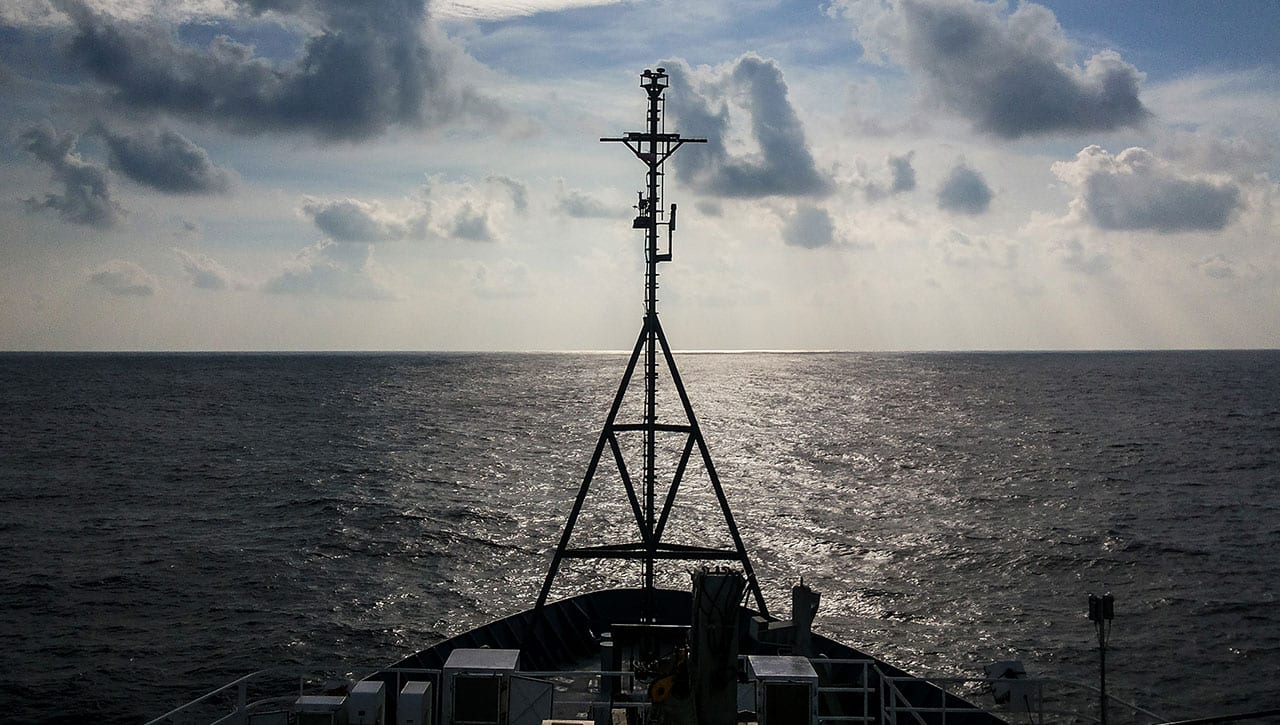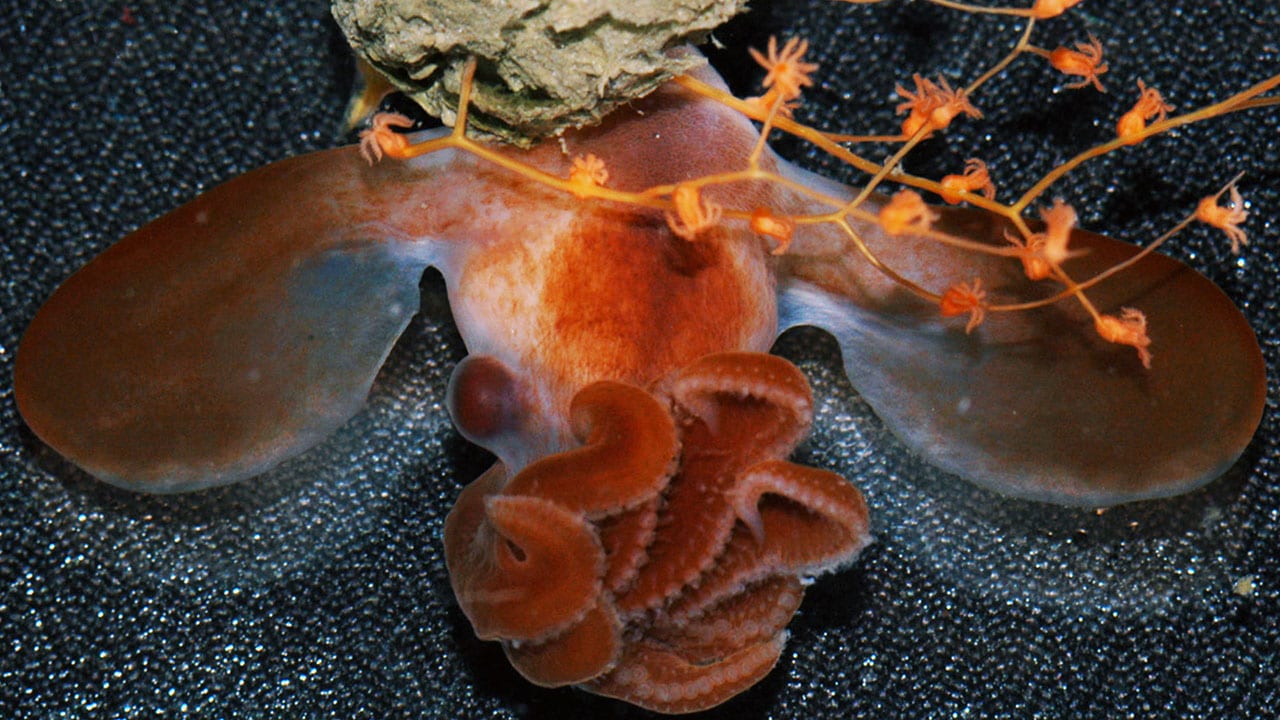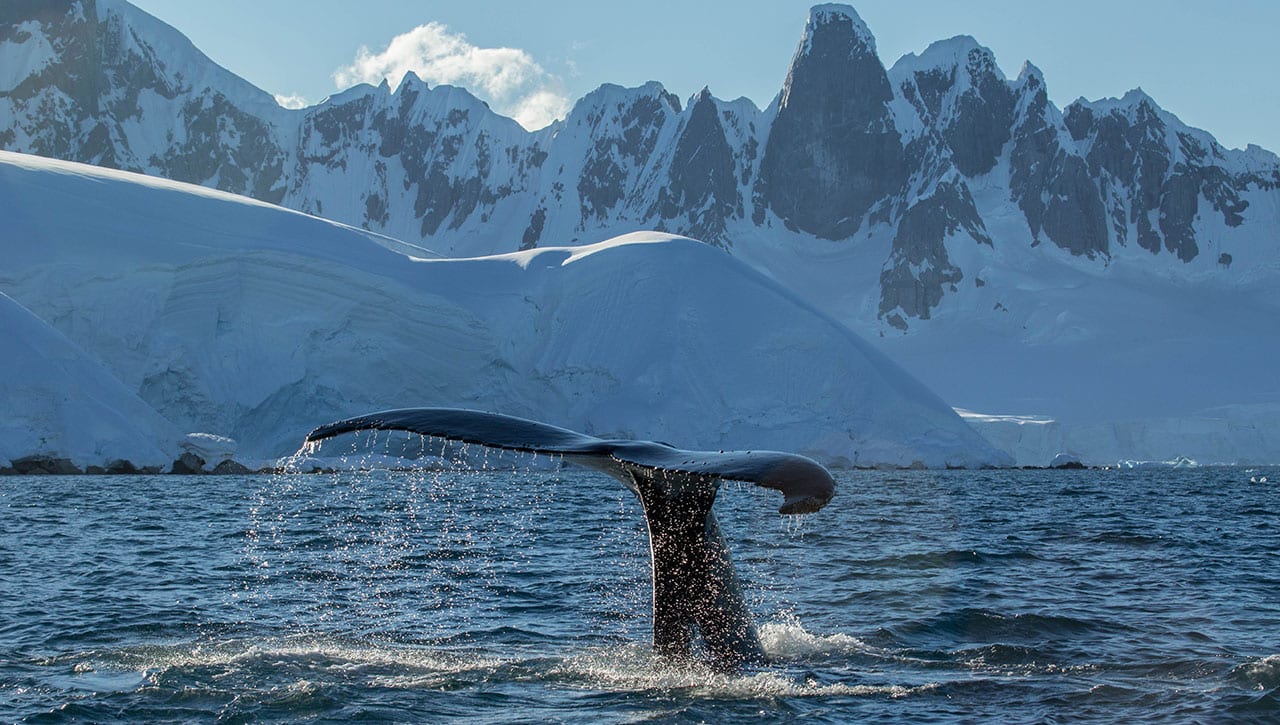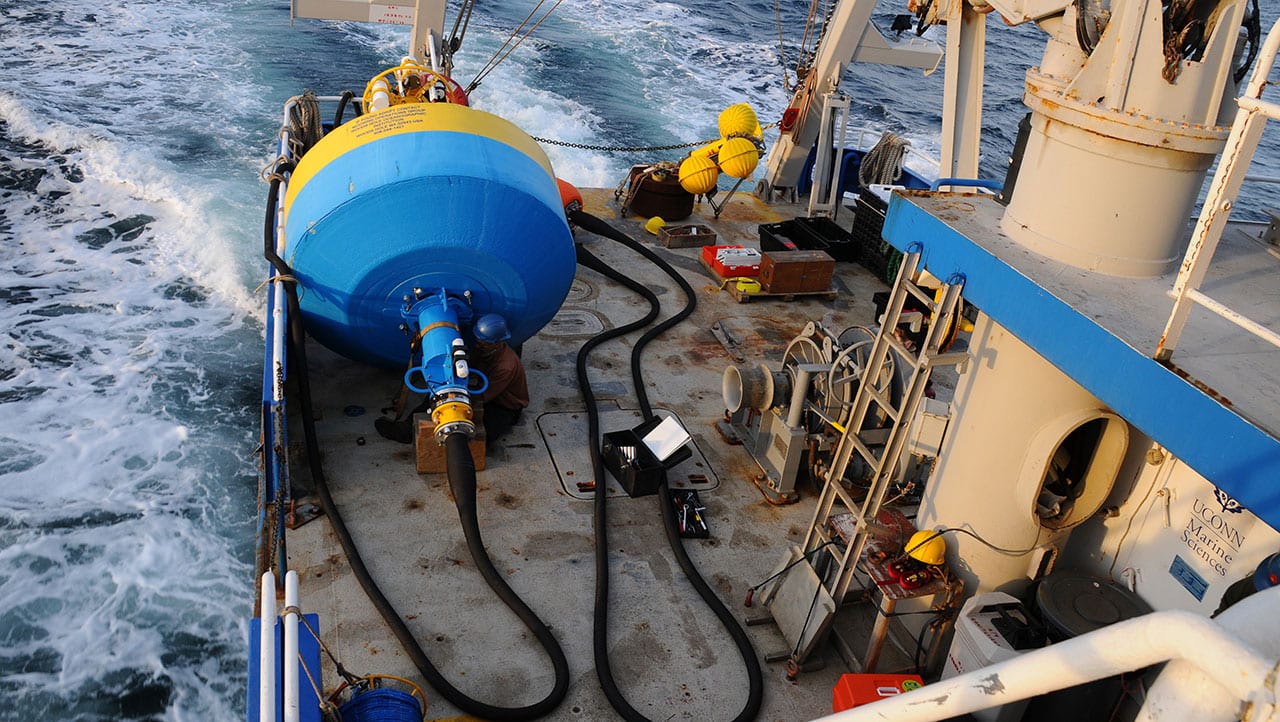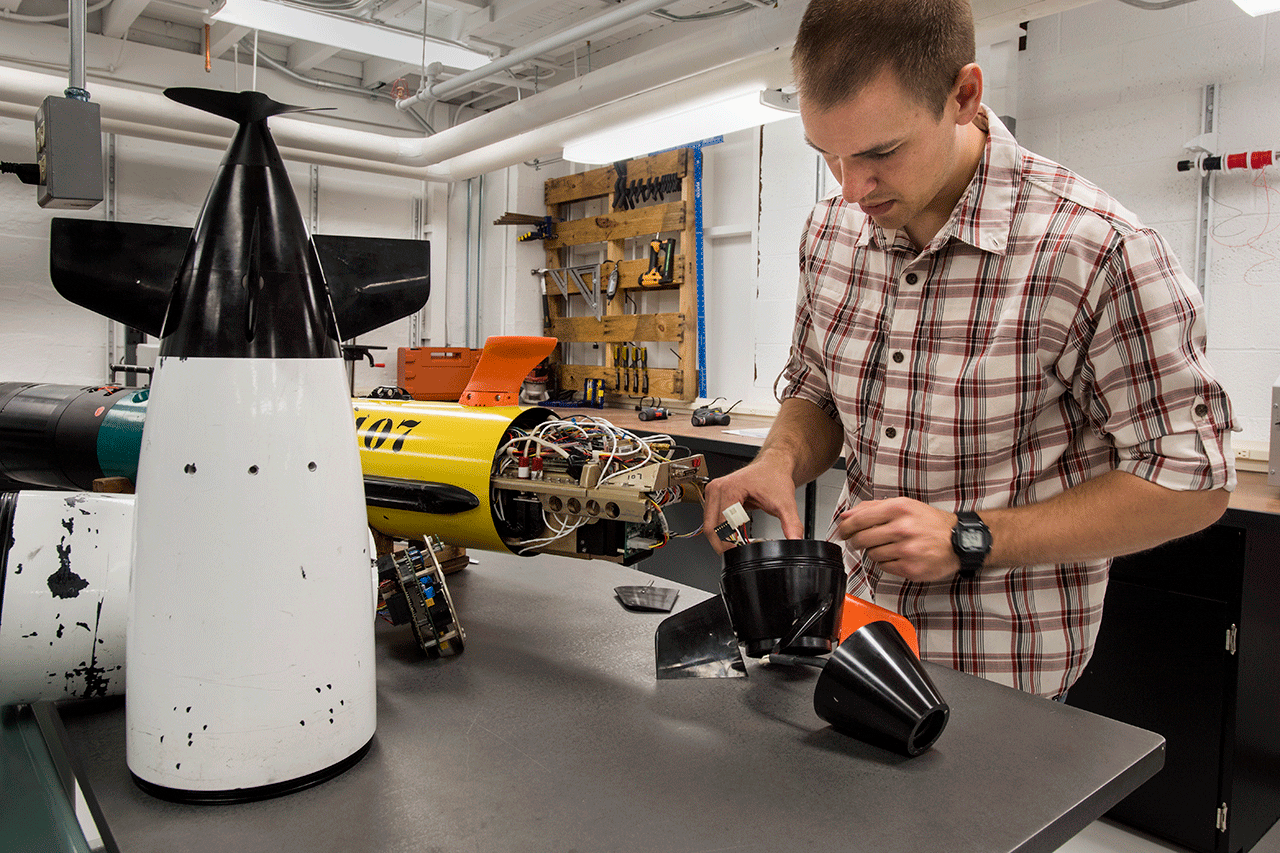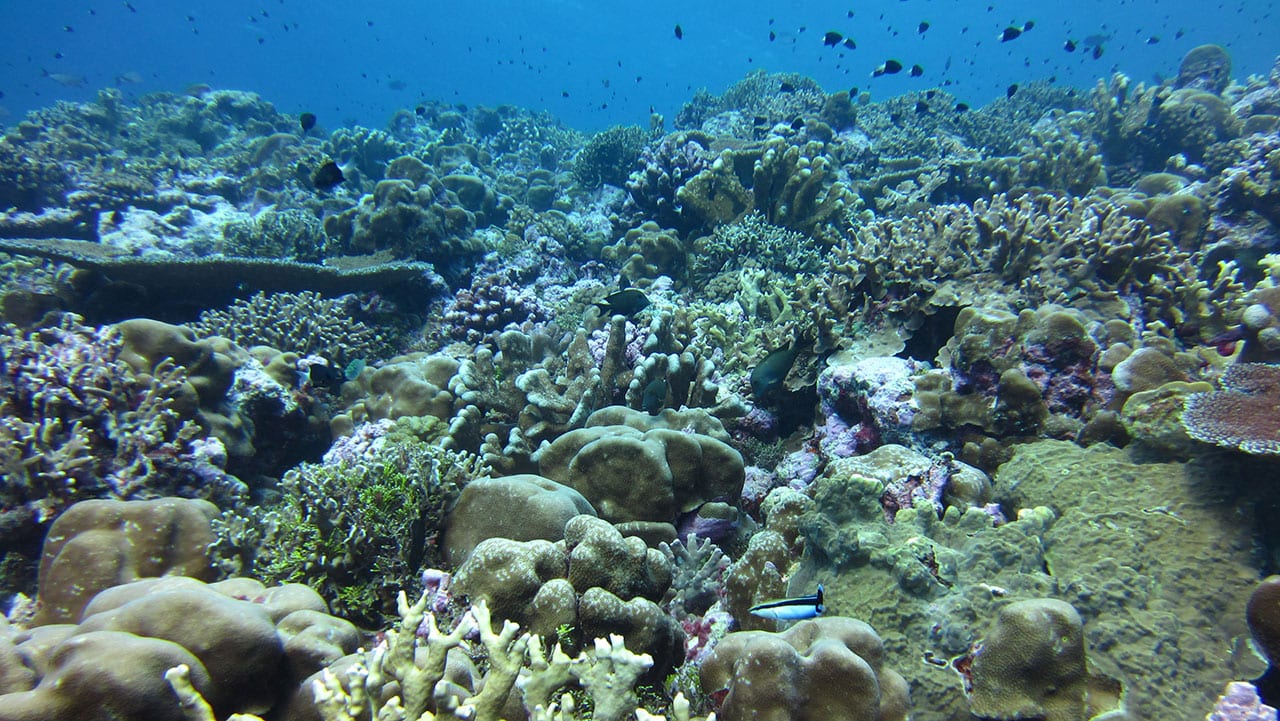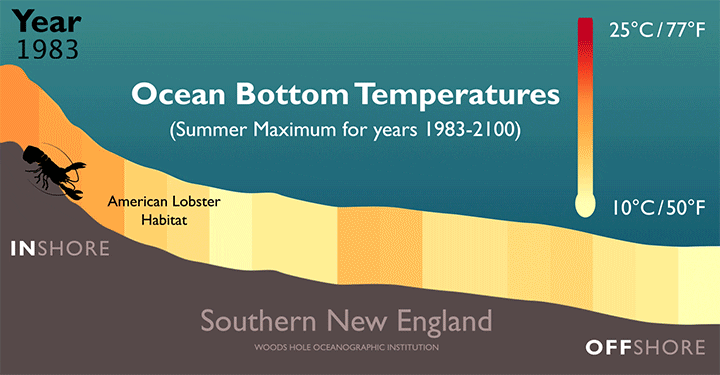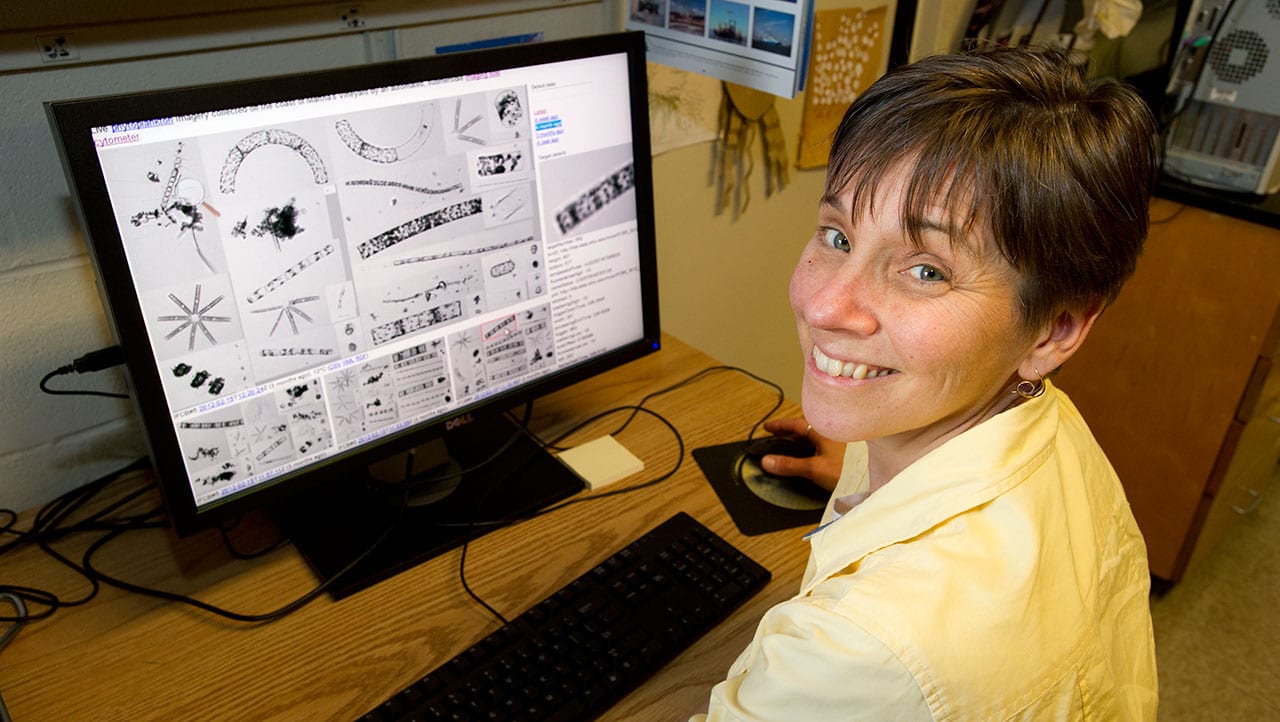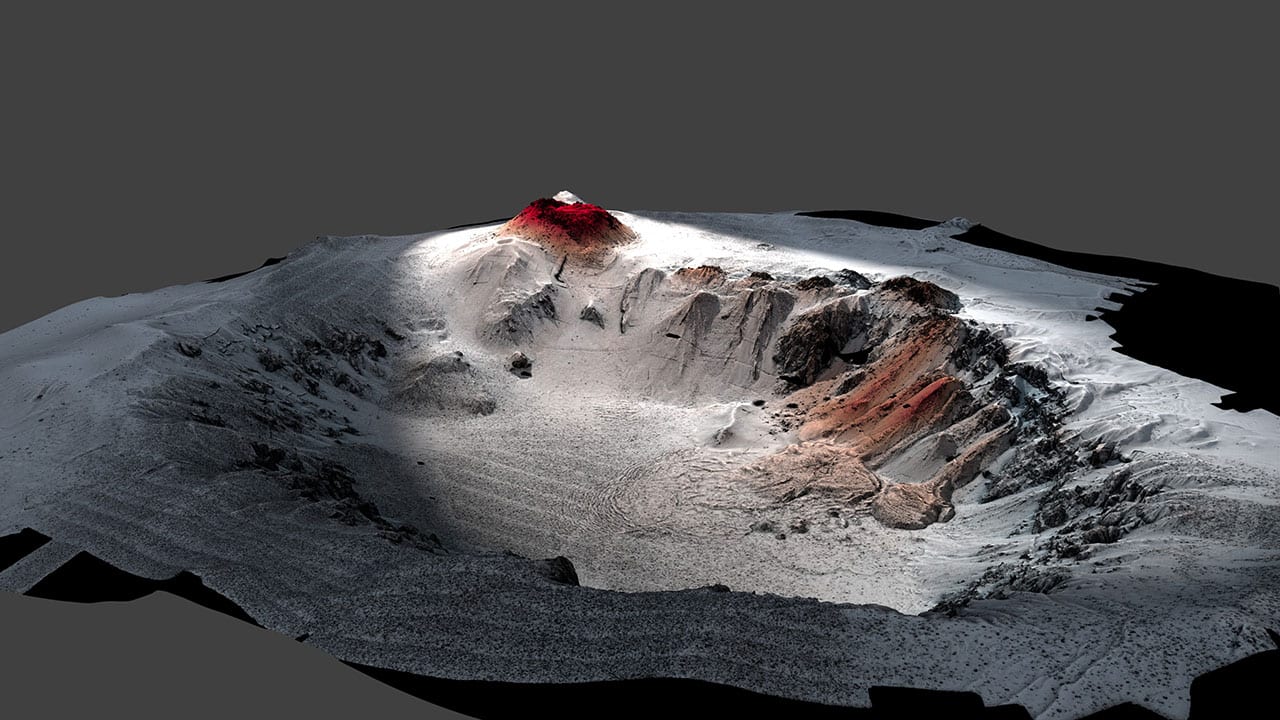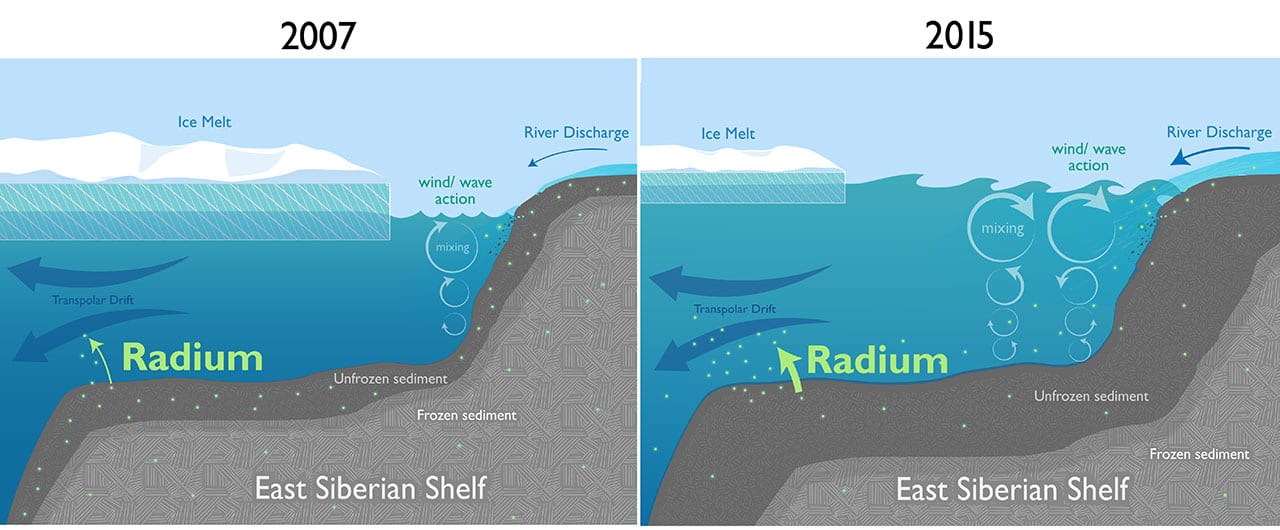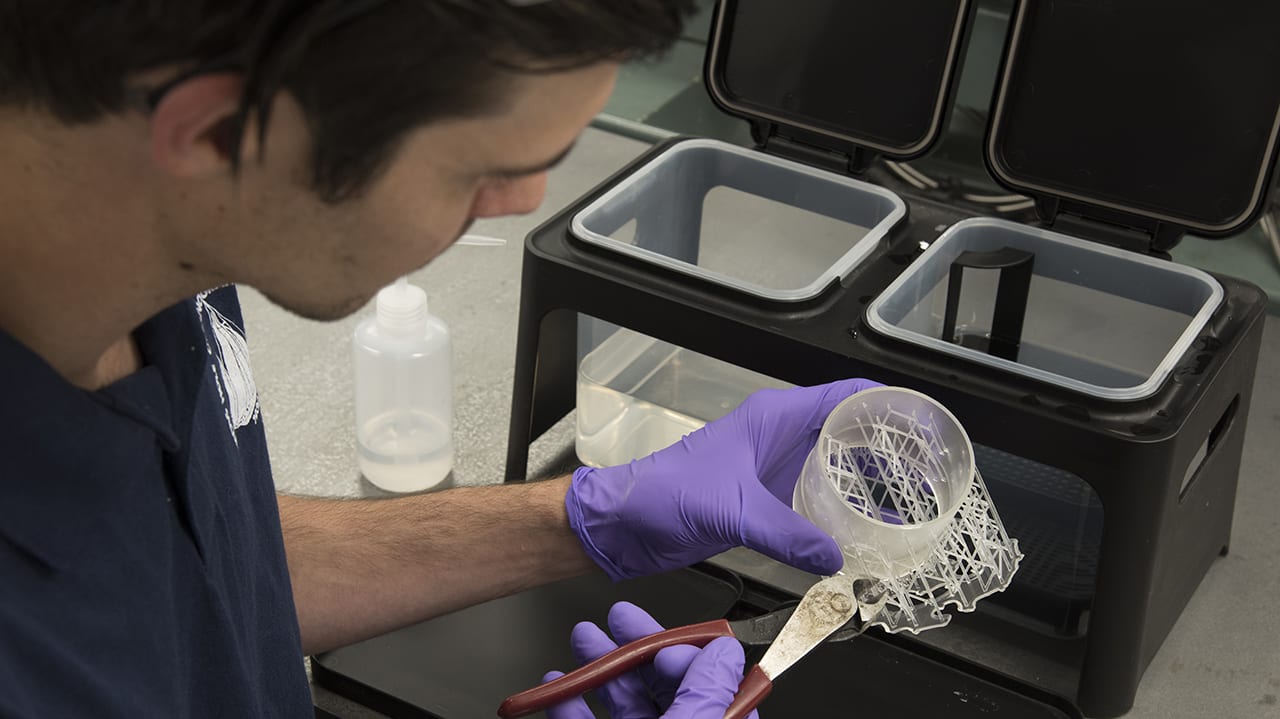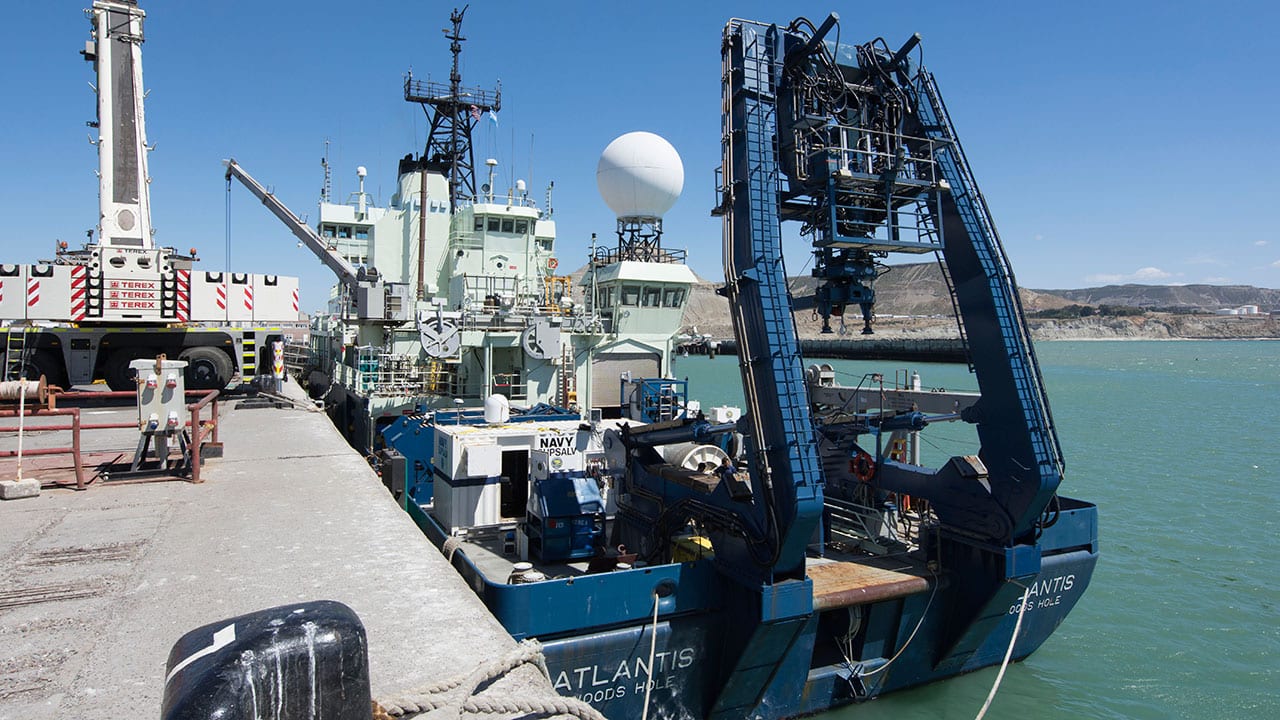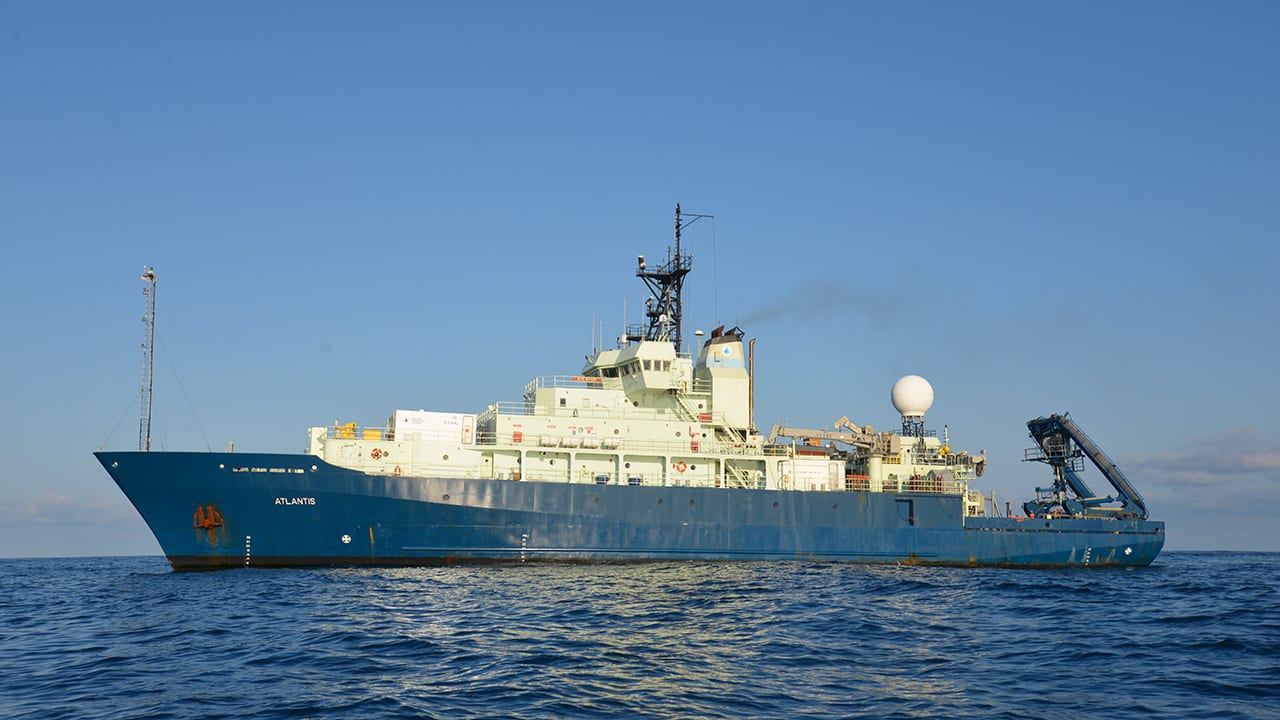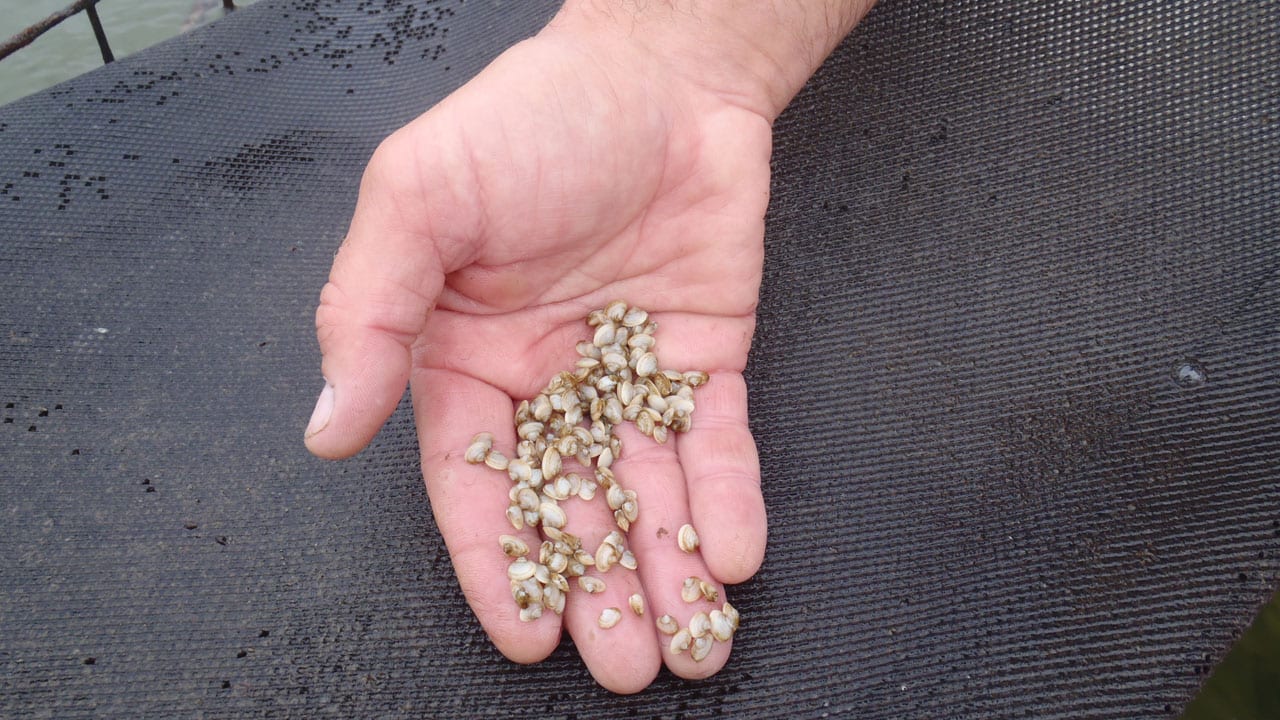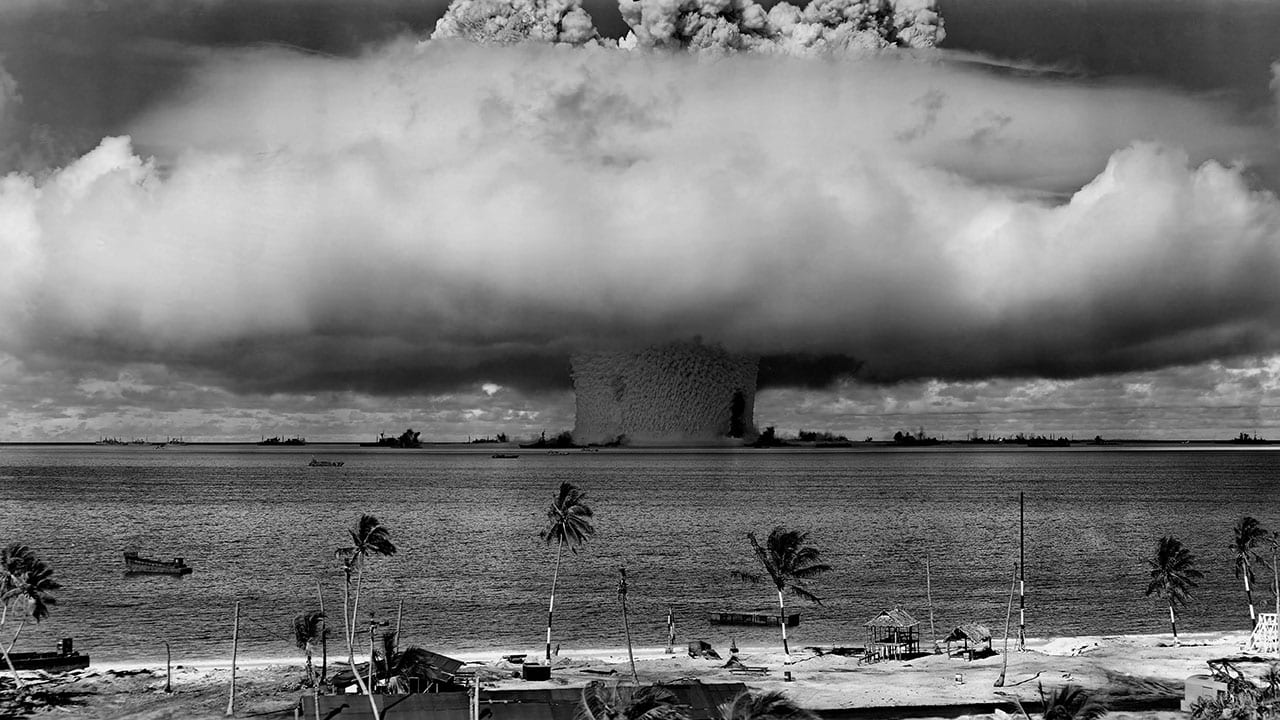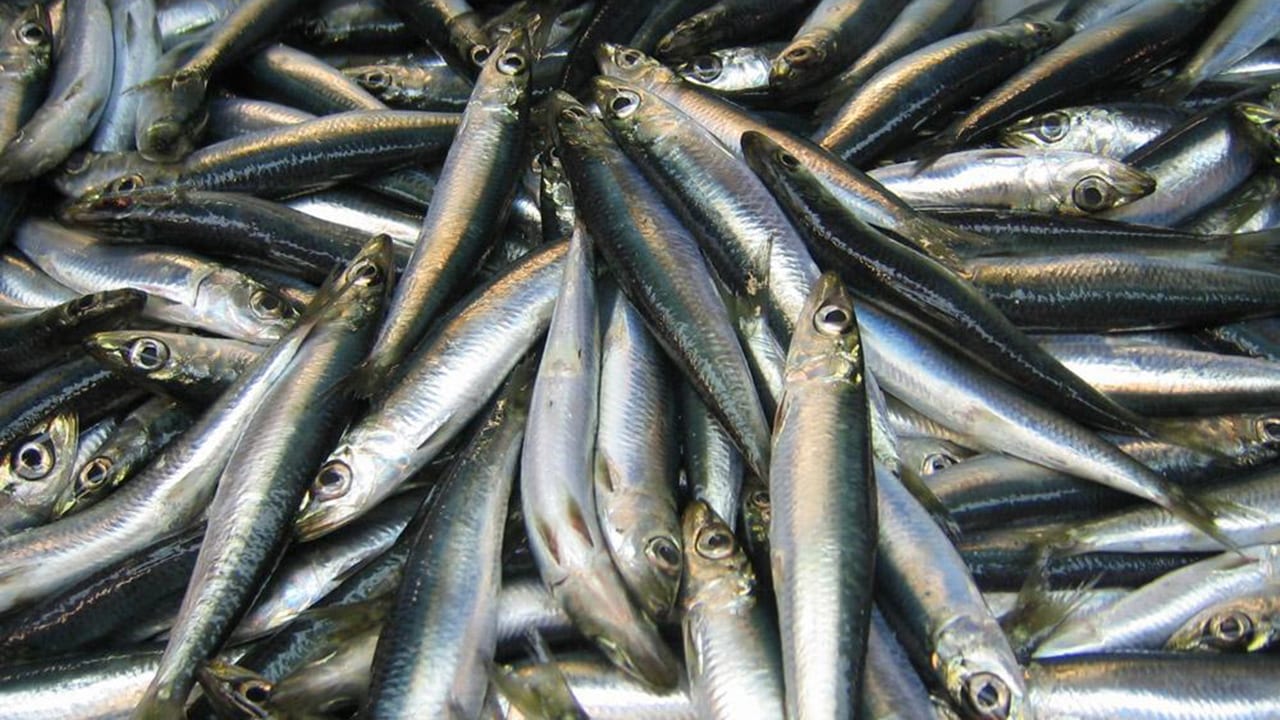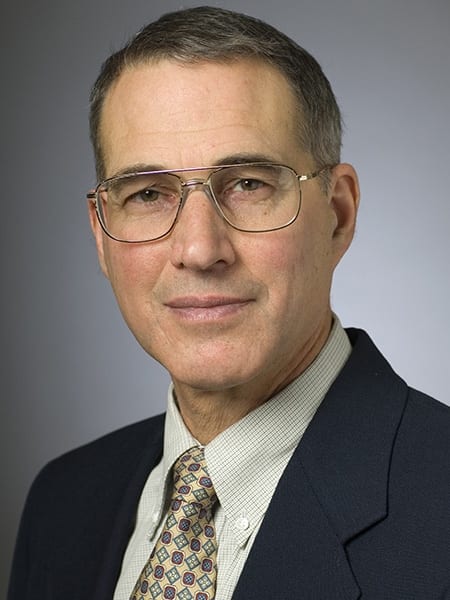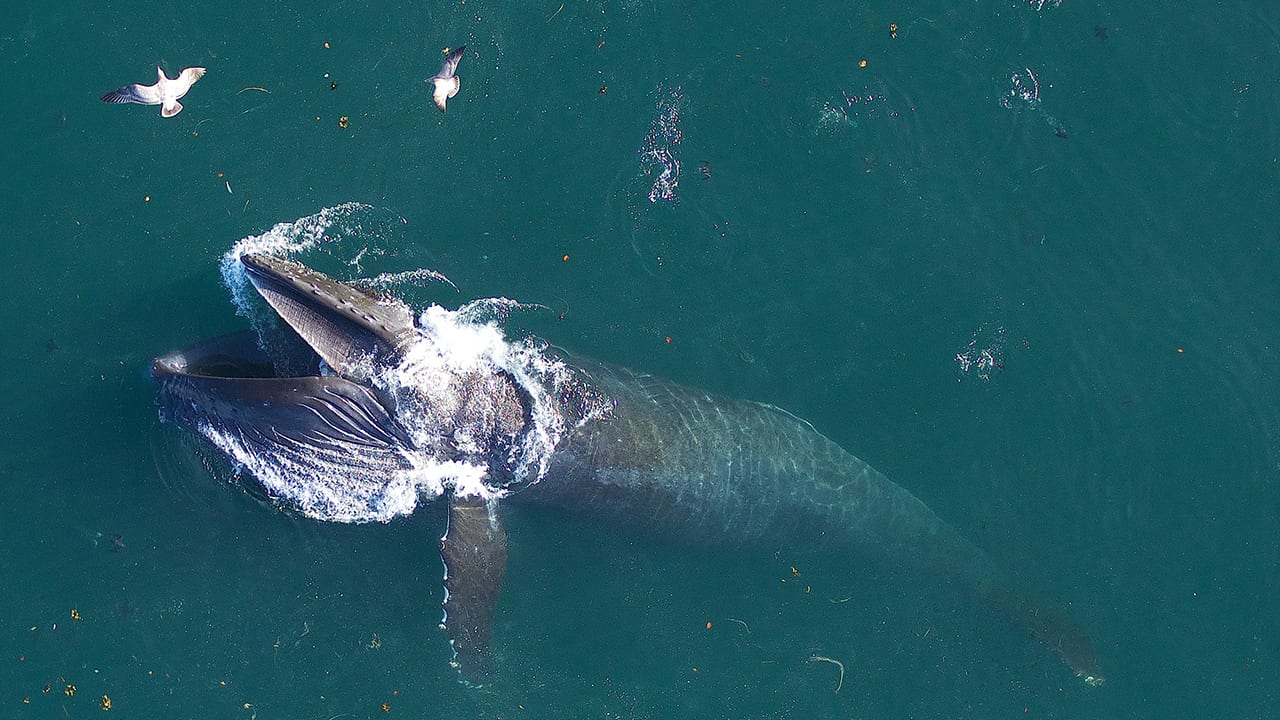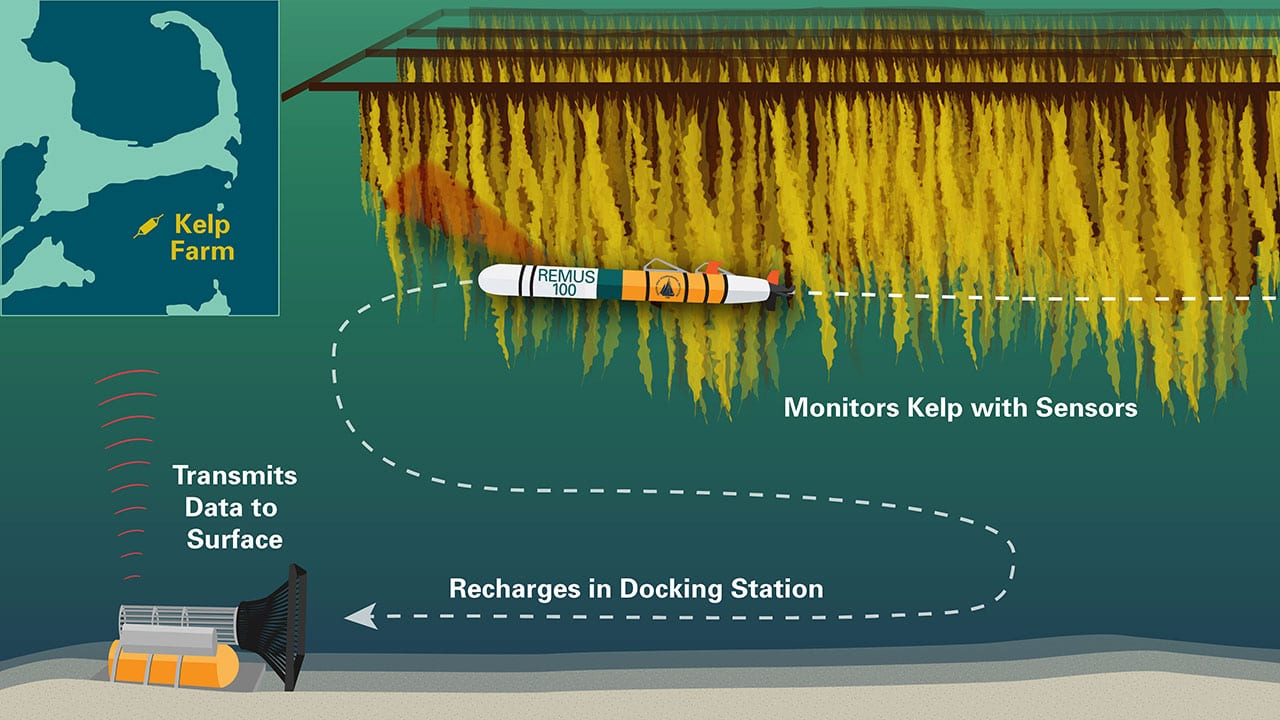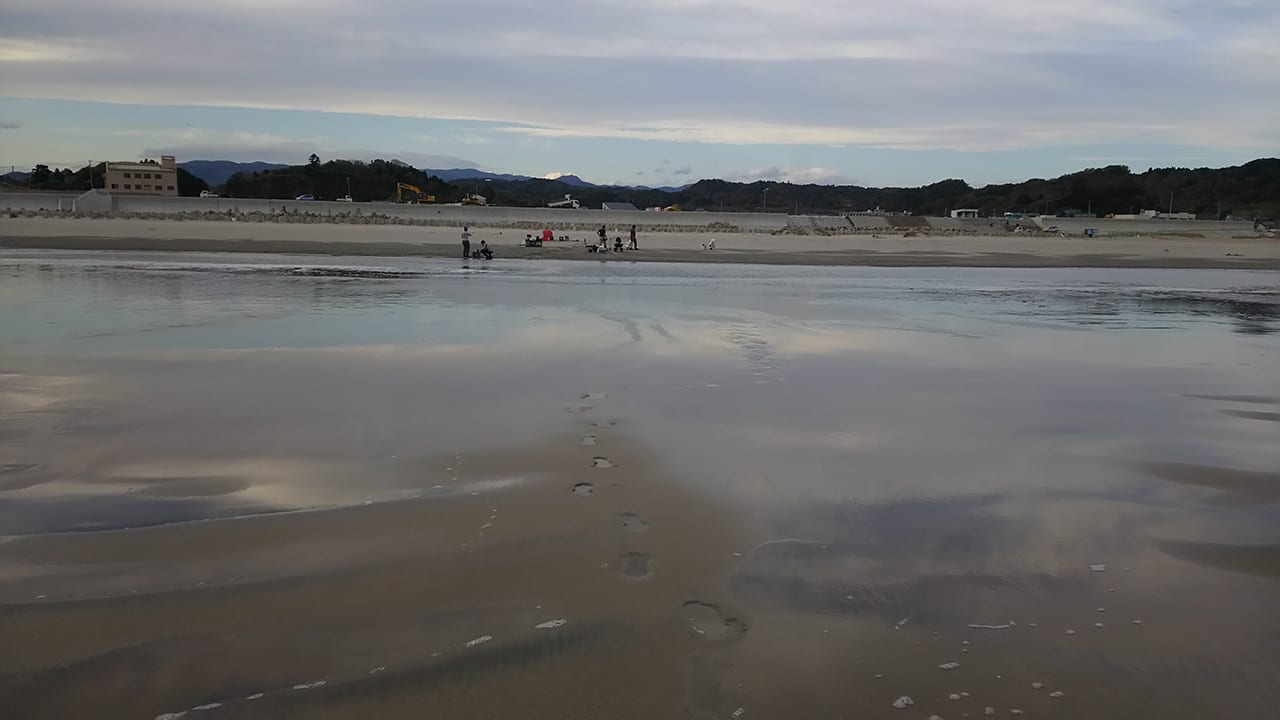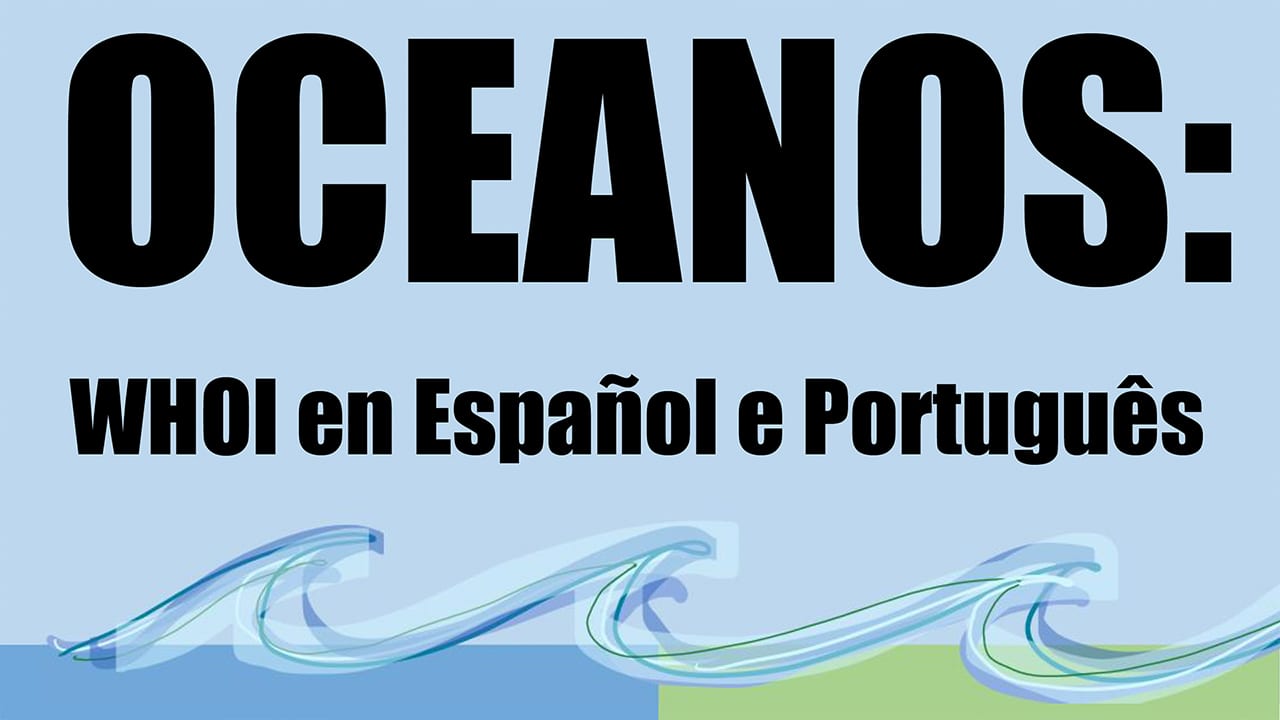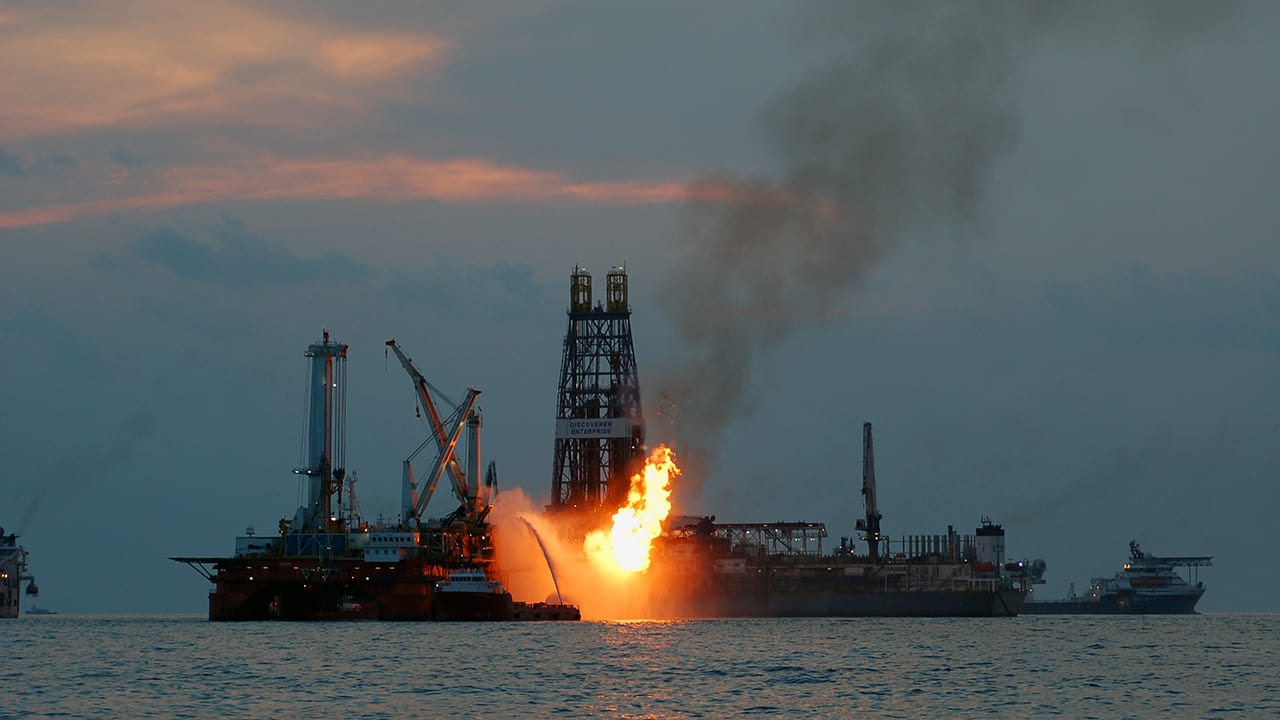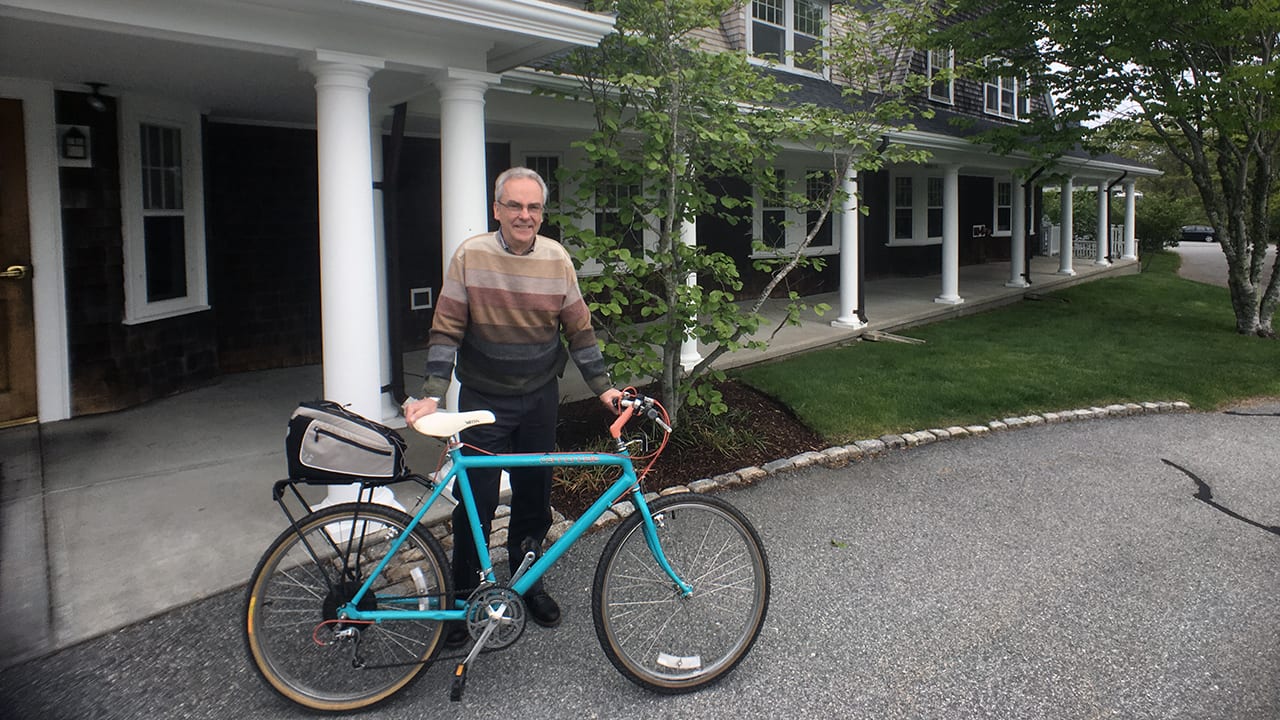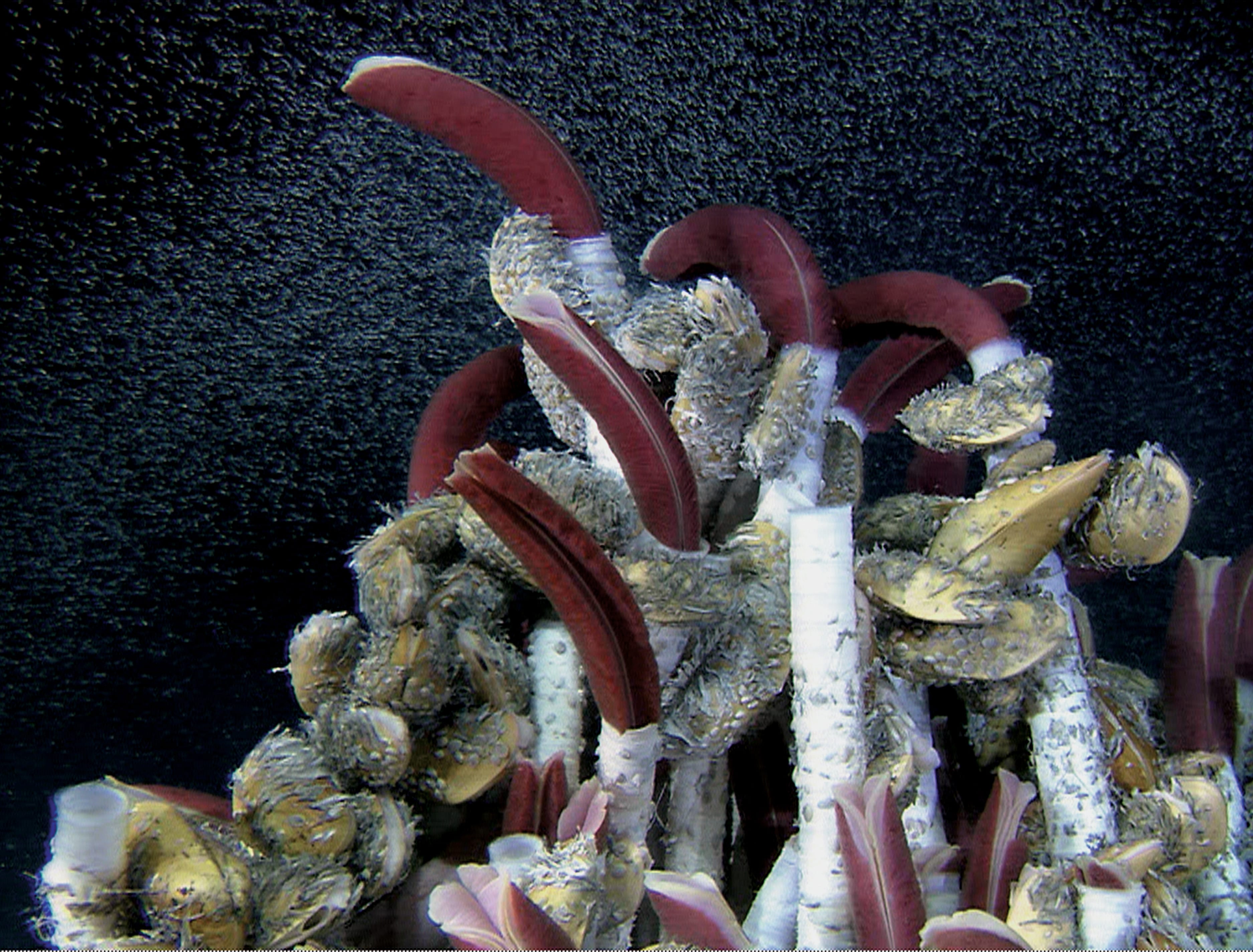News Releases
Where Fresh is Cool in Bay of Bengal
Each summer, the South Asian monsoon transforms parts of India from semi-arid into lush green lands able to support farming. The annual infusion of rainfall and resulting runoff into the Ganges, Brahmaputra, and other rivers in the region also has a very different, but no less dramatic, impact on the Bay of Bengal in the northeast Indian Ocean.
Read MoreRare Find from the Deep Sea
For the first time ever, a team of international researchers were given the rare opportunity to observe and film a dumbo octopus – measuring just a few centimeters – hatching from its egg during an expedition to explore a chain of underwater mountains off the U.S. East Coast in 2005. Their findings were published Feb. 19, 2018, in the journal Current Biology.
Read MoreMonitoring Bacteria on Whale Skin
Just like with humans, the skin on marine mammals serves as an important line of defense against pathogens in their environment. A new study sheds light on the skin microbiome – a group of microorganisms that live on skin – in healthy humpback whales, which could aid in future efforts to monitor their health.
Read MoreWHOI Spins Off Local Technology Start-up
Woods Hole Oceanographic Institution (WHOI) is selling its controlling interest in EOM Offshore, a mooring systems company based on technology developed by engineers at WHOI. The company was founded as a start-up in 2010 to commercialize highly stretchable, fatigue-resistant hoses to transmit power and data to and from undersea sensors.
Read MoreWHOI Center for Marine Robotics Receives NextGEN Award
The Center for Marine Robotics at Woods Hole Oceanographic Institution (WHOI) was chosen to receive a NextGEN award by the Massachusetts TechHUB Caucus.
Read MoreScientists Pinpoint How Ocean Acidification Weakens Coral Skeletons
The rising acidity of the oceans threatens coral reefs by making it harder for corals to build their skeletons. A new study identifies the details of how ocean acidification affects coral skeletons, allowing scientists to predict more precisely where corals will be more vulnerable.
Read MoreFeeling the Heat in the NW Atlantic
Rising temperatures along the bottom of the Atlantic Ocean will force American lobsters (H. americanus) farther offshore and into more northern waters, according to a new study led by researchers at the Woods Hole Oceanographic Institution (WHOI).
Read MoreHeidi Sosik Selected as a Fellow of The Oceanography Society
Heidi Sosik, a senior scientist in the Biology Department at Woods Hole Oceanographic Institution (WHOI) has been named a 2018 Fellow of The Oceanography Society (TOS). Sosik’s accomplishments will be formally recognized on Feb. 13, 2018, during a ceremony at the 2018 Ocean Sciences Meeting in Portland, Oregon.
Read MoreA Close-up Look at a Rare Underwater Eruption
A new paper published January 10, 2018, in the journal Science Advances describes the first up-close investigation of the largest underwater volcanic eruption of the past century. The international research team led by the University of Tasmania and the Woods Hole Oceanographic Institution (WHOI) used the autonomous underwater vehicle (AUV) Sentry and the remotely operated vehicle (ROV) Jason to explore, map, and collect erupted materials from the Havre volcano during a 2015 expedition. They found that the eruption was surprising in many ways.
Read MoreScientists Find Surprising Evidence of Rapid Changes in the Arctic
Scientists have found surprising evidence of rapid climate change in the Arctic: In the middle of the Arctic Ocean near the North Pole, they discovered that the levels of radium-228 have almost doubled over the last decade.
Read MoreMoore Foundation Awards $3M to WHOI
Scientists and engineers at the Woods Hole Oceanographic Institution (WHOI) will receive a two-year, $3 million award from the Gordon and Betty Moore Foundation to transform how the oceanographic community develops and deploys technology ranging from individual sensors to comprehensive, round-the-clock observing systems. By integrating new ideas and exploring new partnerships, WHOI researchers aim to foster an environment that reduces the cost of ocean science and engineering and that enables more flexible ocean observing systems that can rapidly incorporate new technologies to meet evolving science objectives and requirements.
Read MoreWHOI Ship Atlantis Launches New Mission to Find Missing Argentinian Submarine
The U.S. research vessel Atlantis will launch a search-and-recovery mission for the missing Argentinian submarine ARG San Juan, equipped with a U.S. Navy remotely operated vehicle (ROV) flown down to Argentina.
Read MoreWHOI ship Atlantis Participates in Search for Missing Sub
WHOI research vessel Atlantis joins search for missing Argentine submarine using equipment to survey the seafloor
Read MoreBay State Aquaculture Projects Get Green Light from National Sea Grant Program
Two new grants to the Woods Hole Sea Grant program totaling more than $650,000 are part of a national strategic investment in aquaculture and will support research aimed at expanding aquaculture production in Massachusetts.
Read MoreRadioactivity Lingers from 1946-1958 Nuclear Bomb Tests
Scientists have found lingering radioactivity in the lagoons of remote Marshall Island atolls in the Pacific Ocean where the United States conducted 66 nuclear weapons tests in the 1940s and […]
Read MoreWHOI Led Research Team Receives Funding to Develop Ocean Temperature Forecast System
The Woods Hole Oceanographic Institution (WHOI) was awarded a competive federal grant from the National Oceanic and Atmospheric Administration (NOAA) to develop a forecast system that will predict seasonal and […]
Read MoreJim Ledwell Selected as a Fellow of The Oceanography Society
Jim Ledwell, Emeritus Research Scholar at the Wood Hole Oceanographic Institution (WHOI), has been named a 2017 Fellow of The Oceanography Society (TOS). The society noted his many achievements, […]
Read MoreStudy Identifies Whale Blow Microbiome
A new study by the Woods Hole Oceanographic Institution (WHOI) and colleagues identified for the first time an extensive conserved group of bacteria within healthy humpback whales’ blow’the moist breath that whales spray out of their blowholes when they exhale.
Read MoreFueling the Future
WHOI was awarded $5.7 million from ARPA-E’s Macroalgae Research Inspiring Novel Energy Resources (MARINER) Program for two projects that develop tools and technology to advance the mass production of seaweed for biofuels and bio-based chemicals.
Read MoreScientists Find New Source of Radioactivity from Fukushima Disaster
Scientists have found a previously unsuspected place where radioactive material from the Fukushima Dai-ichi nuclear power plant disaster has accumulated’in sands and brackish groundwater beneath beaches up to 60 miles away. The sands took up and retained radioactive cesium originating from the disaster in 2011 and have been slowly releasing it back to the ocean.
Read MoreWHOI Hosts Bilingual Science Symposium
The organizers of a new event at Woods Hole Oceanographic Institution (WHOI) want to make ocean science more accessible to people who are not native English speakers by reaching out to two of the largest non-English-speaking communities on Cape Cod: those that speak Spanish or Portuguese. The symposium will feature short presentations in either language about marine research by students and scientists from WHOI and other science institutions in Woods Hole, Mass. The event is free and open to the public, and pre-registration is recommended.
Read MoreDispersants Improved Air Quality for Responders at Deepwater Horizon
A study published Aug. 28, 2017, in the Proceedings of the National Academy of Sciences adds a new dimension to the controversial decision to inject large amounts of chemical dispersants immediately above the crippled oil well at the seafloor during the Deepwater Horizon disaster in 2010. The dispersants may have significantly reduced the amount of harmful gases in the air at the sea surface’diminishing health risks for emergency responders and allowing them to keep working to stop the uncontrolled spill and clean up the spilled oil sooner.
Read MoreWHOI Selected for Bicycle Friendly Business Award
The League of American Bicyclists recognized the Woods Hole Oceanographic Institution (WHOI) with a Silver Bicycle Friendly Business award, which acknowledges efforts by the Institution that promote cycling to help ease traffic congestion, reduce greenhouse gas and pollution emissions, and encourage a healthy lifestyle among its employees.
Read MoreWHOI Hosts Public Event Celebrating the 40th Anniversary of the Discovery of Deep-Sea Hot Springs
The discovery of lush communities of deep-sea life at thermal springs on the seafloor in 1977 forever changed our perception of where and how life could exist on Earth. Diving […]
Read More
